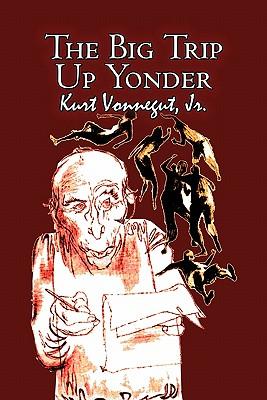The story is set in 2158 A.D., after the invention of a medicine called Anti-Gerasone, which is made from mud and dandelions and is thus inexpensive and widely available. Anti-Gerasone halts the aging process and prevents people from dying of old age as long as they keep taking it; as a result, America now suffers from severe overpopulation and shortages of food and resources. With the exception of the very wealthy, most of the population appears to survive on a diet of foods made from processed seaweed and sawdust. Gramps Ford, his chin resting on his hands, his hands on the crook of his cane, was staring irascibly at the five-foot television screen that dominated the room. On the screen, a news commentator was summarizing the day's happenings. Every thirty seconds or so, Gramps would jab the floor with his cane-tip and shout, "Hell, we did that a hundred years ago!" Emerald and Lou, coming in from the balcony, where they had been seeking that 2185 A.D. rarity--privacy--were obliged to take seats in the back row, behind about a dozen relatives with whom they shared the house. All save Gramps, who was somewhat withered and bent, seemed, by pre-anti-gerasone standards, to be about the same age--somewhere in their late twenties or early thirties. Gramps looked older because he had already reached 70 when anti-gerasone was invented. He had not aged in the 102 years since. "Next one shoots off his big bazoo while the TV's on is gonna find hisself cut off without a dollar--" his voice suddenly softened and sweetened--"when they wave that checkered flag at the Indianapolis Speedway, and old Gramps gets ready for the Big Trip Up Yonder." He sniffed sentimentally, while his heirs concentrated desperately on not making the slightest sound. For them, the poignancy of the prospective Big Trip had been dulled somewhat, through having been mentioned by Gramps about once a day for fifty years.

The Big Trip Up Yonder by Kurt Vonnegut, Science Fiction, Literary
The story is set in 2158 A.D., after the invention of a medicine called Anti-Gerasone, which is made from mud and dandelions and is thus inexpensive and widely available. Anti-Gerasone halts the aging process and prevents people from dying of old age as long as they keep taking it; as a result, America now suffers from severe overpopulation and shortages of food and resources. With the exception of the very wealthy, most of the population appears to survive on a diet of foods made from processed seaweed and sawdust. Gramps Ford, his chin resting on his hands, his hands on the crook of his cane, was staring irascibly at the five-foot television screen that dominated the room. On the screen, a news commentator was summarizing the day's happenings. Every thirty seconds or so, Gramps would jab the floor with his cane-tip and shout, "Hell, we did that a hundred years ago!" Emerald and Lou, coming in from the balcony, where they had been seeking that 2185 A.D. rarity--privacy--were obliged to take seats in the back row, behind about a dozen relatives with whom they shared the house. All save Gramps, who was somewhat withered and bent, seemed, by pre-anti-gerasone standards, to be about the same age--somewhere in their late twenties or early thirties. Gramps looked older because he had already reached 70 when anti-gerasone was invented. He had not aged in the 102 years since. "Next one shoots off his big bazoo while the TV's on is gonna find hisself cut off without a dollar--" his voice suddenly softened and sweetened--"when they wave that checkered flag at the Indianapolis Speedway, and old Gramps gets ready for the Big Trip Up Yonder." He sniffed sentimentally, while his heirs concentrated desperately on not making the slightest sound. For them, the poignancy of the prospective Big Trip had been dulled somewhat, through having been mentioned by Gramps about once a day for fifty years.